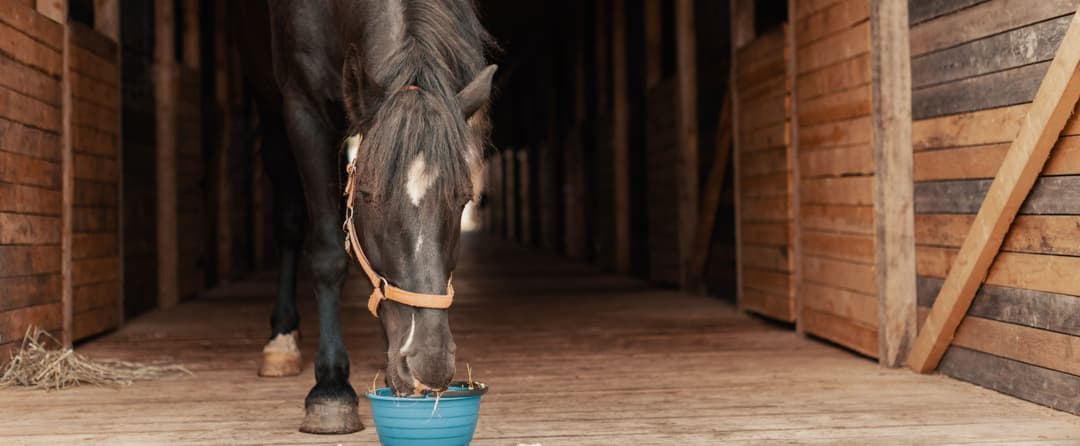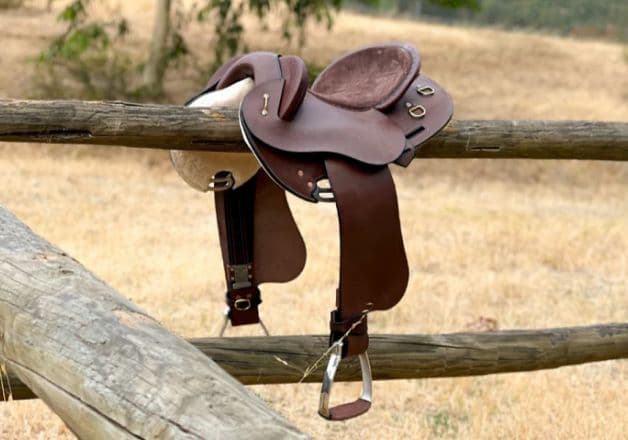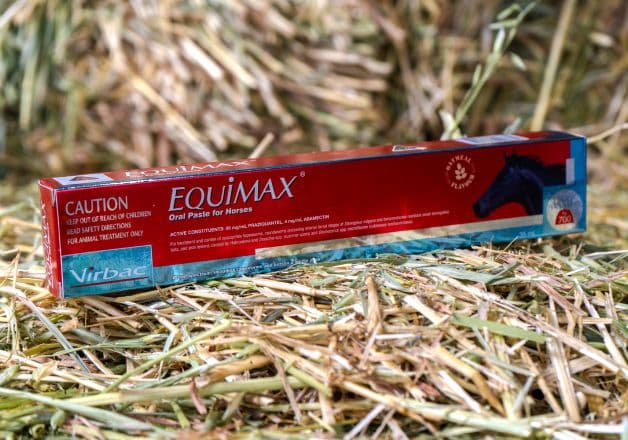
What Can Horses Eat? Toxic and Safe Food for Horses
When it comes to feeding horses, it’s not always as straightforward as tossing them an apple or letting them nibble on grass.
Horses have sensitive digestive systems and specific nutritional needs, and while some human foods are fine in moderation, others can cause serious health issues.
So, what’s safe and what’s not?
We’re breaking it down, rapid-fire style. Here’s a simple list of foods that are nos and foods that are gos!
Can horses eat bananas?
Yes, horses can eat bananas. Bananas are safe for horses in small amounts and are often enjoyed as a sweet treat.
Bananas are soft, easy to chew, and packed with potassium, vitamin B6 and fibre – all of which can benefit your horse’s health. Some horses even like the peel!
Just make sure to feed bananas in moderation, as too much sugar (even natural sugar) isn’t great for their digestive system. Stick to a few slices as an occasional reward.
Can horses eat celery?
Yes, horses can eat celery. It’s a safe, low-calorie snack that many horses enjoy for its crunch.
Celery is high in water and fibre, making it a hydrating, gut-friendly treat. Chop it into manageable pieces, especially if you have a smaller horse or pony, to avoid any risk of choking.
It’s also a fun texture change from their usual feed and can even help keep their teeth a little cleaner while chewing.
Can horses eat grapes?
Yes, horses can eat grapes, but only in small amounts.
They’re not toxic to horses, but too many can upset their stomach thanks to all the natural sugar. Grapes can also be a choking hazard if fed whole, so it’s best to cut them in half first.
A few grapes here and there as a treat are totally fine, just don’t go overboard. Like most things with horses, moderation is best.
Can horses eat strawberries?
Yes, horses can eat strawberries. They’re safe in small amounts and can be a sweet and refreshing snack.
Strawberries are rich in vitamin C, antioxidants and water – a great summertime option. Just don’t overdo it, as their sugar content can add up quickly.
Wash them well, remove the tops if you prefer, and feed just a few at a time to keep things balanced.
Can horses eat cucumber?
Yes, horses can eat cucumber. This veggie is safe, hydrating, and low in sugar.
Cucumbers are made up of about 95% water, so they can help keep your horse cool and refreshed on warmer days.
Their mild taste and crunchy texture make them an easy add-in to your horse’s treat rotation. Just chop them into slices or sticks for easier chewing.
Can horses eat lettuce?
Yes, horses can eat lettuce. It’s non-toxic and safe, although not particularly nutrient-dense.
Lettuce is mostly water, so while it’s not harmful, it doesn’t add much in terms of nutrition. That said, some horses do enjoy the texture and coolness of it, especially in warmer weather.
Stick to basic varieties like cos or butter lettuce – avoid anything overly bitter or sprayed with pesticides.
Can horses eat watermelon?
Yes, horses can eat watermelon. Both the flesh and rind are safe in small amounts.
Watermelon is a fun and hydrating treat, especially in summer. Horses tend to love the sweet red part, but they can also safely munch on the rind (as long as it’s clean and cut into smaller pieces).
As always, moderation is key due to its sugar content.
Can horses eat pears?
Yes, horses can eat pears. They’re safe and sweet but should be given in moderation.
Pears are juicy, high in fibre, and full of vitamins like C and K. Just make sure to remove the core and seeds before feeding, as the seeds can contain small amounts of cyanide – not ideal for your horse’s gut. A few slices now and then make a lovely treat.
Can horses eat oranges?
Yes, horses can eat oranges. They’re safe, including the peel, but should only be fed occasionally.
Oranges are high in vitamin C and natural sugars, which makes them tasty but not suitable for daily feeding.
Cut them into wedges and monitor your horse’s reaction – some love the tang, others turn up their noses. Either way, they can be a fun, occasional snack.
Can horses eat pumpkin?
Yes, horses can eat pumpkin. Plain, fresh pumpkin is a safe and nutritious treat.
Pumpkin is rich in fibre and low in sugar, making it a great seasonal option. Make sure it’s fresh (not canned or spiced) and cut into chunks they can handle.
Even the seeds are safe in small quantities. Just avoid mouldy pumpkins!
How much fruit or veg should you feed a horse?
When it comes to treats, less is more. One or two pieces of any fruit or veg mentioned above are more than enough for most horses. Even if your horse acts like they could eat a whole watermelon in one sitting, it doesn’t necessarily mean they should.
Horses are grazing animals, so their digestive system is designed to process small amounts of forage throughout the day. That means sudden changes or large quantities of unfamiliar foods (even healthy ones) can throw things out of balance.
Too many treats can lead to issues like colic, diarrhoea, or laminitis.
While fruits and veggies can be a great source of hydration, enrichment and variety, they should never replace your horse’s main diet of hay, pasture and balanced feed. And if your horse has any dietary conditions, always check with your vet before introducing sugary or starchy treats.
So yes, your horse might want another banana or an extra chunk of pumpkin...but sometimes, the best care means knowing when to say no!
Looking for more tips on keeping your horse happy and healthy? Explore more horse care blogs today.



